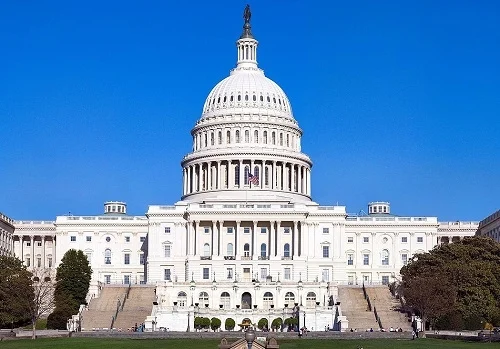ANALYSIS: Industry calls for targeted reforms to support US crypto market
22nd August, 2025|Radi Khasawneh

New, targeted legislation is required to encourage more crypto assets into the US regulated space, experts have suggested as US policymakers consult on a more permissive approach to digital assets.
The CFTC this month opened a consultation on the listing of spot contracts by registered exchanges, with the agency suggesting existing regulation allows designated contract markets (DCMs) to trade crypto contracts.
But key firms argued in their responses to the consultation, which closed on Monday, that further measures are required to reflect the unique characteristics of the fast-growing crypto space.
“FIA strongly supports the ongoing federal efforts to craft a clear, comprehensive regulatory regime that will foster vibrant digital asset markets,” general counsel Allison Lurton wrote in a letter.
“FIA believes that the Commission should have regulatory authority over spot digital commodities, and that legislative action consistent with the CLARITY Act is the best means of achieving this important outcome for market participants and the public at large," Lurton added.
The FIA’s argument is that DCMs can already list spot contracts outside of the regulated space and there is currently no legal basis to bring that activity into the DCM's regulatory jurisdiction.
Intercontinental Exchange (ICE), in a separate submission, also called for a defined framework for the listing of the contracts.
“Digital assets create the same risks to markets and market participants, and ICE strongly believes that the same regulatory standards and oversight that foster market integrity and customer protection should apply,” Kara Dutta, head of legal for US futures exchanges and clearing at ICE, said in a submission. “To that end, ICE is supportive of legislation to clarify the regulatory framework under which DCMs may list spot crypto transactions and other digital assets, including registration, custody and trading.”
Retail broker tastyfx called for a further change to allow Registered Foreign Exchange Dealers (RFED) to list and clear contracts under the FX framework, which would differ from the suggested approach of allowing DCMs to list crypto contracts as commodities.
“We strongly recommend that the CFTC extend its proven FX regulatory framework to encompass spot cryptocurrency trading and allow RFEDs and Futures Commission Merchants (FCM) to offer certain cryptocurrencies in the same manner as currently done with fiat currencies,” the firm said. “This approach offers the most efficient path forward while maintaining robust consumer protections.”
“Native” crypto firms, meanwhile, have warned against sweeping changes that could impact the existing crypto spot market.
“Any contemplated changes to accommodate spot crypto asset markets under the CEA must preserve critical elements of the existing spot crypto market structure, recognising the fundamental differences between the futures and spot crypto asset markets,” Coinbase said in its own letter. “Applying the futures regulatory regime without ensuring that it is fit for purpose could hinder, or even preclude, the activity the CFTC seeks to enable and regulate.”
Kraken, which operates one of the largest spot digital asset exchanges in the US, echoed the sentiment by pointing out key differences with the futures regime.
“Kraken encourages the staff to work with industry stakeholders to study the unique technical aspects of operating a spot digital asset exchange,” the exchange said. “For example, while DCM compliance and operations place a heavy emphasis on market surveillance and trading conduct, spot digital asset exchanges are constituted around anti-money laundering compliance principles and crypto-specific cybersecurity systems that have been designed to address the unique aspects of the digital asset markets relative to traditional markets.
“In addition, the staff should ensure that custody of spot digital assets in connection with their trading on a DCM is informed by top industry standards given the specialised nature in which digital assets are protected and maintained for customers.”


